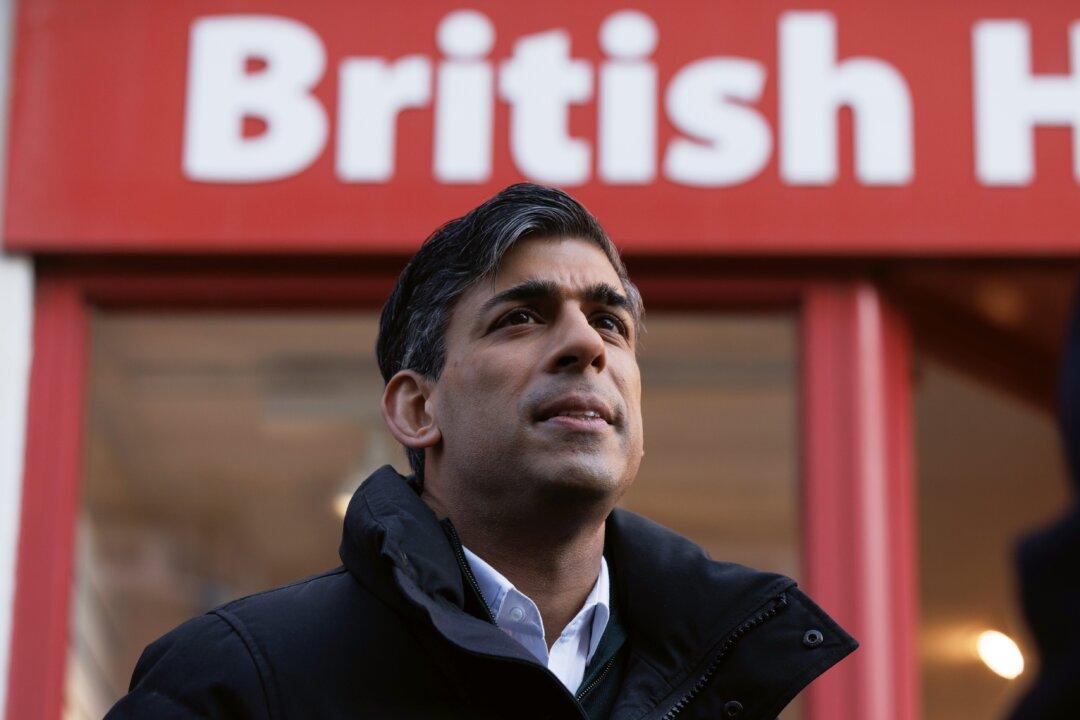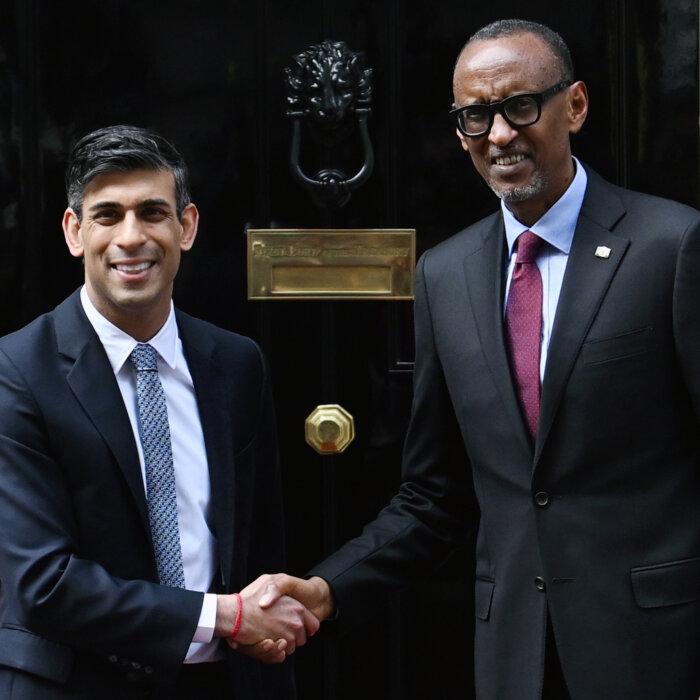The government has suffered a major defeat to its Rwanda bill on Monday as it lost a series of votes in the House of Lords.
Peers made five changes to the Safety of Rwanda (Asylum and Immigration) Bill, which the government hopes would underpin its plan to send illegal immigrants to the east African country.
The amendments, which put restrictions on when Rwanda can be considered safe for the purpose of relocating asylum seekers, were all passed by unusually large margins of around 100 votes, setting the stage for a Westminster showdown over the legislation.
Prime Minister Rishi Sunak has previously warned the unelected chamber against frustrating “the will of the people” by hampering the passage of the bill, which has already been approved by MPs.
After the Supreme Court decided the government’s original Rwanda policy was unlawful because of defects in Kigali’s asylum system, the government upgraded its deal with Rwanda to a legally-binding treaty that requires reforms in the system and ensures relocated individuals can’t be deported elsewhere, including their home countries where they may face risks of persecution.
The Safety of Rwanda (Asylum and Immigration) Bill was designed to have Parliament declare Rwanda a safe country for the purpose of relocating illegal immigrants based on the treaty, and give the government power to ignore court injunctions on the grounds that the country is not safe in general.
The controversial bill was passed in the Commons despite criticisms from both opposition parties, which oppose the Rwanda policy, and Tory rebels including former Home Secretary Suella Braverman and former immigration minister Robert Jenrick, who believe the bill is not tough enough to end what they call legal merry-go-rounds that frustrate deportation.
On Monday, peers inserted a line to the bill, saying the UK must maintain “full compliance with domestic and international law” when removing illegal immigrants to Rwanda.
Amendments
Another adopted amendment replaced “is a safe country” to “will be a safe country when, and so long as, the arrangements provided for in the Rwanda Treaty have been fully implemented and are being adhered to in practice.”In January, peers adopted a non-binding motion that the UK shouldn’t ratify the Rwanda treaty “until the protections it provides have been fully implemented.”
In Kigali, the treaty has been ratified in the lower house of Parliament last week and will go now to the Senate.
Peers on Monday introduced a duty for the home secretary to obtain and lay before Parliament a statement from the independent Monitoring Committee that the objectives specified in Article 2 of the treaty have been secured and consult the committee every three months on whether the treaty was adhered to in practice.
The five amendments were passed by margins of between 87 and 110 votes.
Among those to vote against the government were the Archbishop of Canterbury Justin Welby, and Conservative grandees Lord Clarke of Nottingham, Lord Deben, and Viscount Hailsham, who have all previously held Cabinet positions.
The size of the defeats raise the prospect of an extended tussle between the Commons and Lords during “ping-pong,” where legislation is batted between the two Houses until agreement is reached.
Leading lawyer and independent crossbencher, Lord Anderson of Ipswich, said the provision in the bill requiring Rwanda to be treated as safe “takes us for fools.”
Proposing the amendment that would allow the presumption to be challenged in the courts, he added: “If Rwanda is safe as the government would have us declare, it has nothing to fear from such scrutiny.
“Yet we are invited to adopt a fiction, to wrap it in the cloak of parliamentary sovereignty, and to grant it permanent immunity from challenge.”
Urging peers to back the bill, Tory former Cabinet minister Lord Lilley said, “The longer we delay the more people will come across the Channel, and the more will die.”
Former Conservative Party leader Michael Howard told peers the Supreme Court had been “trespassing” on the government’s responsibilities in its Rwanda ruling.
However, Tory former Chancellor Ken Clarke said he hoped there would be a legal challenge to the bill if it was passed.
“I cannot recall a precedent in my time where a government of any complexion has produced a bill which asserts a matter of facts to be fact, and then goes on to say this should be regarded legally as a fact interminably until and unless the bill is changed,” Lord Clarke said.
Later, responding to concerns about mental health support asylum seekers would receive in Rwanda, Home Office minister Lord Sharpe of Epsom said, “It would be far in the best interests, mental health interests of those seeking asylum, and who are victims, to seek asylum in the first safe country they came to.”
The government faces the threat of further defeats on Wednesday when the bill is again before the Lords.






